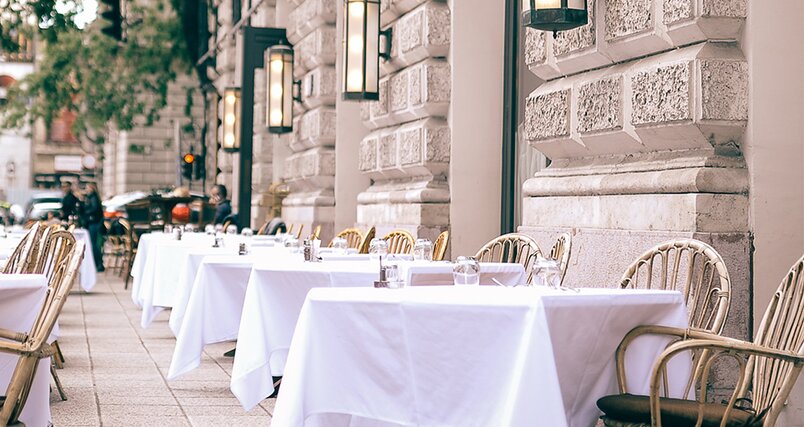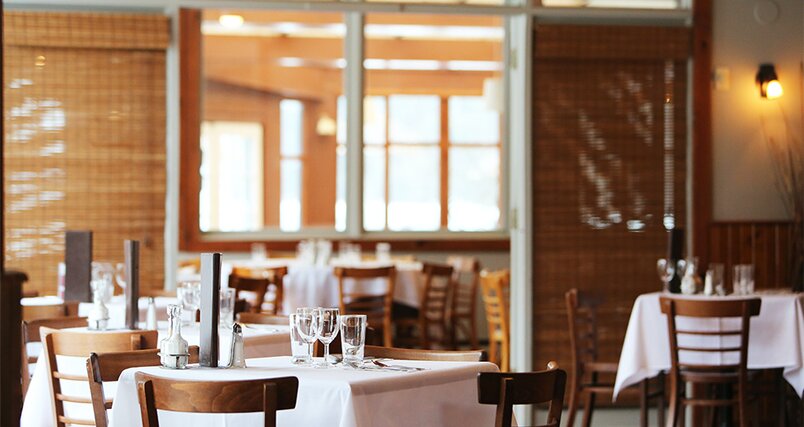1. Working hours
Working hours are a sensitive issue in gastronomy. They are strictly regulated by the Working Hours Act (German ArbZG) and must be observed. This means, for example, that your employees are not allowed to work more than eight hours per workday. This takes the average of the last six months into account. In total, your employees are allowed to work up to 48 hours per week, with Saturday counting as a working day while special rules apply for Sundays and public holidays. Working more than ten hours is only permitted in exceptional cases and you must always ensure that the mandatory rest periods are observed.
2. Mandatory posting
As a restaurateur, you are required to make certain laws and regulations available to your employees. This can be done by posting or display. These include:
- General Equal Treatment Act
- Workplace Ordinance
- Working Hours Act
- Labor Court Act
- Company agreements
- Youth Protection Act
- Youth Employment Protection Act (if you employ at least one young person)
- Maternity Protection Act (if you employ at least three women)
- All applicable regulations of the Employer's Liability Insurance Association for the Food and Hospitality Industry
- All applicable accident prevention regulations
3. Outdoor gastronomy
There are legal regulations for the operation of an outdoor restaurant with regard to opening hours, which must be observed in particular with regard to noise protection, curfew and special uses. The specific regulations may vary depending on the location, but the basic provisions are the same everywhere.
Noise protection and night rest
In terms of noise protection, there are differences between pure and general residential areas, as well as limit levels for day and night, which must be observed by restaurants and bars. As a rule, night rest begins from 10 p.m. both during the week and on weekends. However, there are exceptions and variations.
Curfew
In most federal states, there is no longer a fixed curfew, but special regulations for outdoor gastronomy can be issued by the local regulatory authorities. On special occasions, such as carnival or during the soccer World Cup, exceptions to the nighttime rest or curfews may apply, which are established individually by the responsible authorities.
Special use permit
If you want to use areas that do not directly belong to your business for outdoor gastronomy, you need a special use permit for gastronomy from the municipality. It is essential to ensure that the areas used do not obstruct traffic.
4. Trade
As soon as guests can consume food and beverages in your establishment, you are classified in the category of catering business or gastronomy and must comply with specific official regulations. Even if you do not provide seating or bar tables, your business is considered a restaurant. In order to open a catering business, you need the following official permits:
- a trade license
- a concession (so-called restaurant permit), if you want to serve alcohol
- further permits and insurances covering all legal requirements
Regulations for restaurants vary from state to state and sometimes even from city to city. You can obtain information about the regulations in your federal state from the relevant trade associations such as DEHOGA or your regional Chamber of Industry and Commerce.
Concession
In order to obtain a concession or restaurant permit that allows you to serve alcohol on the premises, you must meet certain requirements and conditions set forth in the German Restaurant Act (GastG). The concession relates to persons, premises and operations. To obtain a concession, you must provide certain supporting documents, including:
- personal reliability (e.g. police clearance certificate)
- professional qualification (e.g. initial training in accordance with the Infection Protection Act)
- suitability of the premises (e.g. lease agreement of the restaurant premises).
If you only serve non-alcoholic beverages, you do not need a concession. However, you still have to comply with trade regulations such as curfews and food hygiene. You must also register your gastronomy business with the trade office.
5. Hygiene
In gastronomy, especially the kitchens, where all food is prepared, are subject to official hygiene requirements. Prior to the opening of a catering business, initial instruction in accordance with infection protection is required by the public health department. To ensure hygienic food preparation, your kitchen must always be impeccably clean. In addition, all personnel, including the wait staff, must be trained in food hygiene. The hygiene regulations and requirements for kitchens in gastronomy are laid down in the Food Hygiene Ordinance (German LMHV) festgelegt.
The training must include the general hygiene requirements according to Section 3 as well as the workplace-specific hygiene conditions for all your employees. The exact requirements for their nature and scope are not explicitly specified (Sectio 4 LMVH). An important aspect of the training is the HACCP self-monitoring and documentation obligation. Training courses and extensive information on this topic are offered, for example, by the Chamber of Industry and Commerce.
6. Youth protection
The German Youth Protection Act (JuSchG) stipulates that young people under the age of 18 are not permitted to order or consume beverages containing spirits in catering establishments. Under 16s are also prohibited from consuming beer, wine or sparkling wine. When selling alcohol to guests, you must ask to see identification if you have any doubts about their age. In addition, there are special regulations for children under the age of 16 – they may enter restaurants only when accompanied by an adult. The Youth Protection Act must be prominently displayed in your establishment.
7. Register obligation
As a restaurateur, you need to calculate the daily revenue. Whether you use an open store cash register or an electronic cash register for this purpose does not matter. However, if you choose to use an open store cash register, you must keep a handwritten cash book documenting daily cash balances as well as receipts, expenditures, cash deposits and withdrawals. An electronic cash register system makes your work easier, as all money movements are recorded automatically.
8. Reusable packaging obligation
On 01-01-2023, the Europe-wide reusable packaging obligation came into force. Since then, you must offer your guests reusable alternatives for takeaway food in addition to disposable packaging. The reusable containers must not be more expensive than the disposable ones, but they can be subject to a deposit. There is an exemption for catering businesses with up to five employees and a sales area of up to 80 square meters, which are also allowed to fill food and beverages into containers brought in by customers.
9. Menu
For the menu, the official requirements for gastronomy regarding price information and allergen labeling must be observed in particular.
Price indication
For cafés, restaurants and similar businesses, there are special regulations on price indication in the Price Indication Ordinance (German PAngV). Prices for food and beverages may not be freely determined, but must comply with the following guidelines:
- The offering must be marked with prices.
- The prices quoted must be final prices, i.e. they must include VAT, for example.
- A clearly visible food and beverage menu must be posted at the entrance.
- Imprecise price information such as price ranges from "9.99 euros to 14.99 euros" or approximate information such as "approx. 9.99 euros" is not permitted.
- The beverage menu must indicate the quantities offered.
Allergens
Proper allergen labeling is very important on your menu. Since 2014, your guests must be informed at the bottom of the dishes about the 14 allergens that are mainly responsible for food allergies and intolerances. These include cereals containing gluten, peanuts, crustaceans, fish, milk or soy.
10. Restroom obligation
Regulations regarding mandatory restrooms in restaurants vary from state to state. However, building and trade authorities usually require that restrooms be available. The number of restrooms depends on several factors, especially the size of the guest room and the beverage service.
If your guest space is less than 50 square meters and you only serve non-alcoholic beverages, restrooms are not required. However, if you sell alcoholic beverages, you need at least one restroom (for the same retail space) that can be used by both sexes. In restaurants with an area of more than 50 square meters, there must be separate restrooms for women and men.










